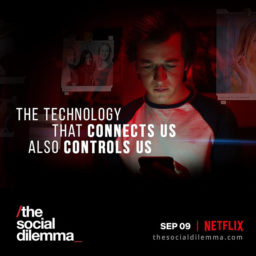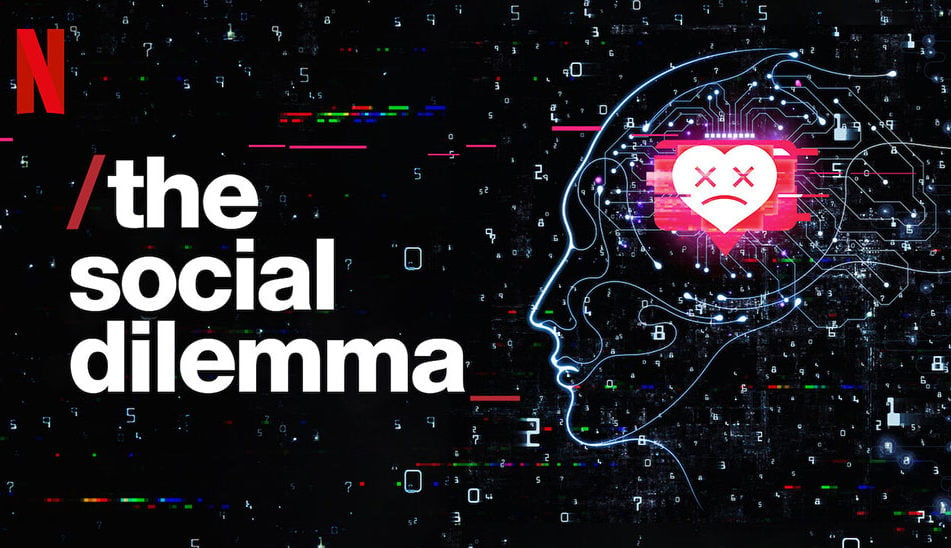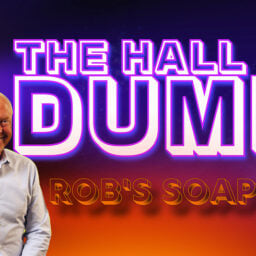Brandon’s Review:
The Social Dilemma
Streaming now on Netflix

Many of you have written into the show asking us our opinion on the “alarming” new documentary covering the human impact of social media. Tech experts sound the alarm by explaining from their point of view as current and former creators/CEOs/founders/pioneers of the Facebook Like button, Instagram’s developers from its earlier days, GMail, GChat, Uber, Pinterest and more. The documentary starts with each of these experts prepping for the documentary, nervously shuffling into position as if they are going to blow the lid off the tech industry, exposing secrets that will take down the tech giants. In reality, everything that was covered in this documentary is something that should surprise no one. Most people are blissfully ignorant to believe that our presence online and on social media isn’t being monitored, tracked and sold to the highest bidder who is looking to use this information for profit, political gain or manipulation socially and/or politically. Wakey wakey! You might want to put on your tin-foil hat for this one.
The Social Dilemma covers such topics as the spread of conspiracy theories and misinformation, extreme polarization in politics, data mining, surveillance capitalism (the commodification of personal data), and the addictive qualities baked into the systems. Which will illicit a reaction of shock and frustration by some, or you’ll have the same reaction as me, “No duh!” Experts warn viewers of the dangers that the algorithms and artificial technology created by social media giants that are currently being used against us. There is no denying that we, the users, are affected and sometimes addicted to technology in some way. The tech companies know this, and they are using that to their advantage. Just look at the word, “users” – There are two businesses that refer to their customers as “users”, illegal drugs and software companies. We, the users, or the lab rats, are being used to help gather data about our existence and decision making on a macro level. Everything about us is being used to cater to our experience online. Feeding us with dopamine dumps and rewards for our prolonged behavior on their platforms. All for profit and gain in some way. Not by you, but because of you.
Most people don’t think that they are addicted to their phone or social media. Don’t think you’re addicted to social media? Unplug for a week. Don’t think you can do that? Try turning your phone off for an hour. No cheating, no looking on your tablet, laptop or desktop. Just imagine someone taking your phone away from you and not allowing you to use it for an hour. Just imagine it… did it give you a little tinge of anxiety?
While it may sound like I’m suggesting that this should all be common knowledge… that is not the case. I’m actually more frustrated with how difficult it is to be objective to misinformation that is so easily spread. Making it more difficult to have conversations without a bias that is based on that misinformation only to lead to a dead end in conversation. Our reliance on social media, or even the media in general, is quickly being based solely on computer models and algorithms. The data gathered can and will be used against us, but it doesn’t have to be that way. It’s not all “doom and gloom” (even though it feels that way). It can be used for good and for the betterment of our existence. The only way we will get there is if we come to understand what we are up against, how we can work together to use technology. These tech experts believe that they have a responsibility to change it.
“The attention extraction model is not how we want to treat human beings. The fabric of a healthy society depends on us getting off this corrosive business model.” – Tristan Harris (former Google designer). This is a statement from the documentary that envelopes the idea of all of the information that is presented (and there is a lot of it). This documentary really makes you think about how our current technology effects us on an individual, societal and global level. If nothing else, it gets you to think… and that’s one thing we could all do for ourselves.
Throughout human history, as our species has faced the frightening, terrorizing fact that we do not know who we are, or where we are going in this ocean of chaos, it has been the authorities — the political, the religious, the educational authorities — who attempted to comfort us by giving us order, rules, regulations, informing — forming in our minds — their view of reality. To think for yourself you must question authority and learn how to put yourself in a state of vulnerable open-mindedness, chaotic, confused vulnerability to inform yourself.
TIMOTHY LEARY, How to Operate Your Brain, 1993









